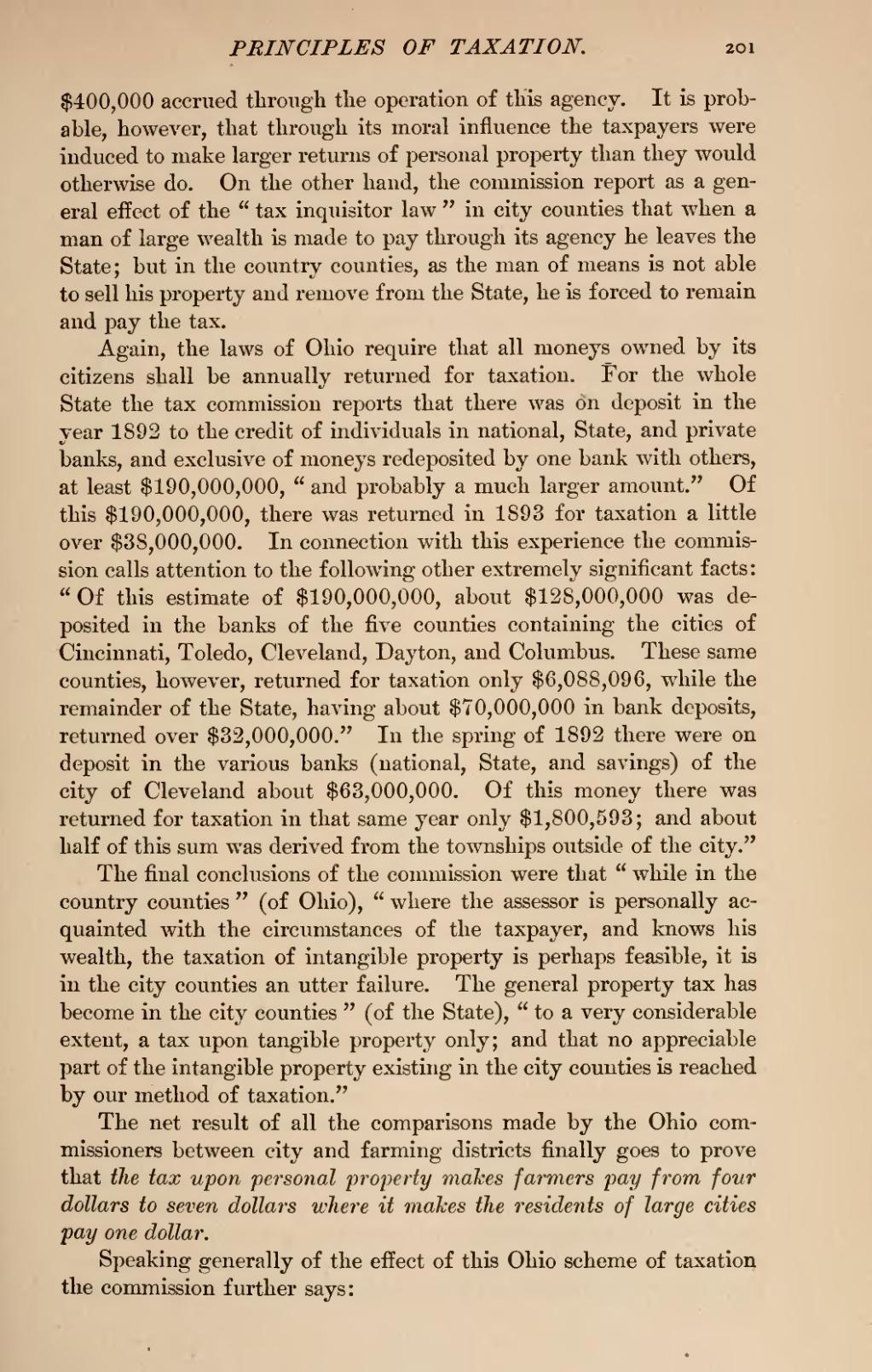$400,000 accrued through the operation of this agency. It is probable, however, that through its moral influence the taxpayers were induced to make larger returns of personal property than they would otherwise do. On the other hand, the commission report as a general effect of the "tax inquisitor law" in city counties that when a man of large wealth is made to pay through its agency he leaves the State; but in the country counties, as the man of means is not able to sell his property and remove from the State, he is forced to remain and pay the tax.
Again, the laws of Ohio require that all moneys owned by its citizens shall be annually returned for taxation. For the whole State the tax commission reports that there was on deposit in the year 1892 to the credit of individuals in national, State, and private banks, and exclusive of moneys redeposited by one bank with others, at least $190,000,000, "and probably a much larger amount." Of this $190,000,000, there was returned in 1893 for taxation a little over $38,000,000. In connection with this experience the commission calls attention to the following other extremely significant facts: "Of this estimate of $190,000,000, about $128,000,000 was deposited in the banks of the five counties containing the cities of Cincinnati, Toledo, Cleveland, Dayton, and Columbus. These same counties, however, returned for taxation only $6,088,096, while the remainder of the State, having about $70,000,000 in bank deposits, returned over $32,000,000." In the spring of 1892 there were on deposit in the various banks (national, State, and savings) of the city of Cleveland about $63,000,000. Of this money there was returned for taxation in that same year only $1,800,593; and about half of this sum was derived from the townships outside of the city."
The final conclusions of the commission were that "while in the country counties" (of Ohio), "where the assessor is personally acquainted with the circumstances of the taxpayer, and knows his wealth, the taxation of intangible property is perhaps feasible, it is in the city counties an utter failure. The general property tax has become in the city counties" (of the State), "to a very considerable extent, a tax upon tangible property only; and that no appreciable part of the intangible property existing in the city counties is reached by our method of taxation."
The net result of all the comparisons made by the Ohio commissioners between city and farming districts finally goes to prove that the tax upon personal property makes farmers pay from four dollars to seven dollars where it makes the residents of large cities pay one dollar.
Speaking generally of the effect of this Ohio scheme of taxation the commission further says:

